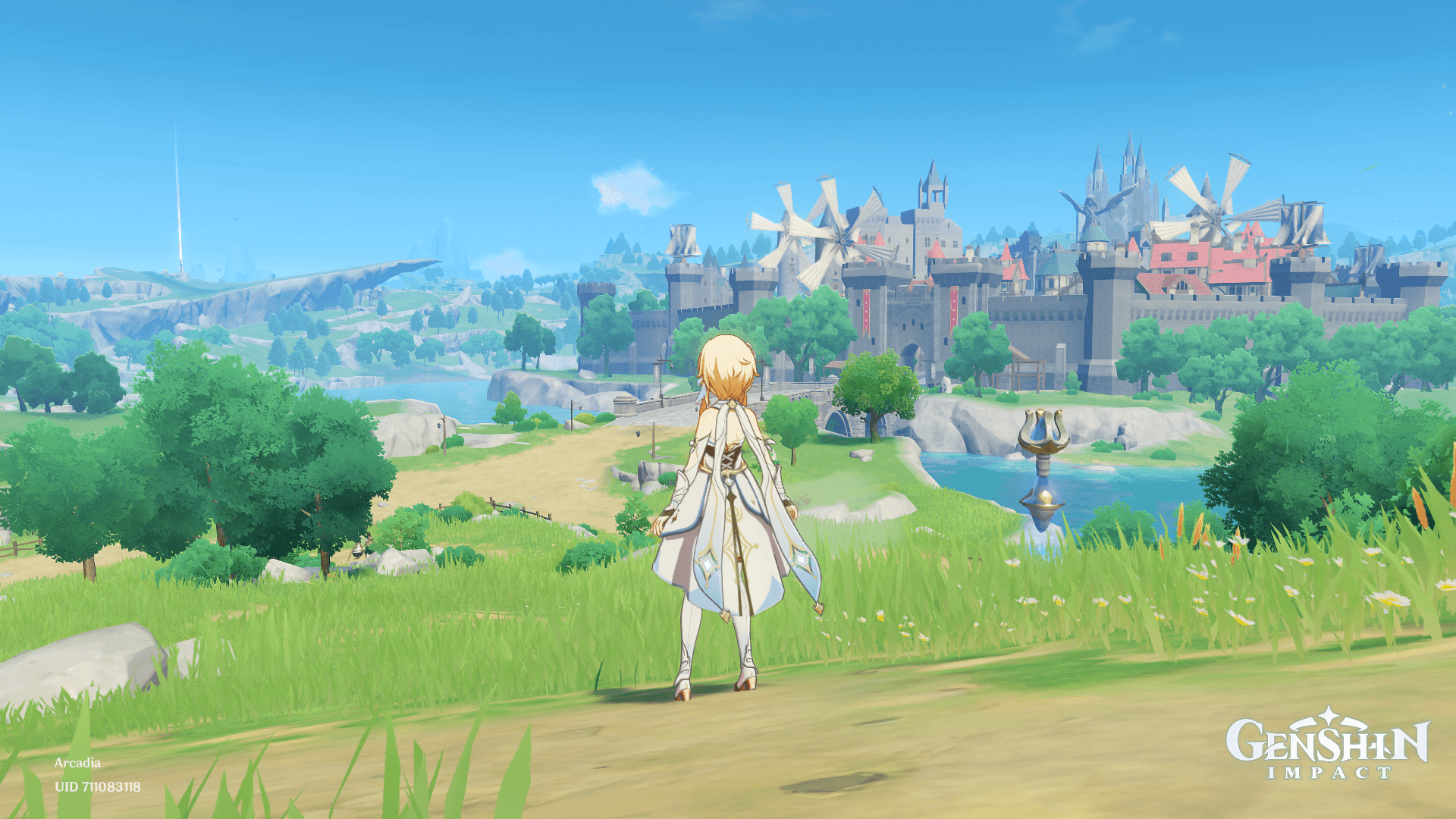Did you know that almost a quarter of mobile game revenue in the United States was generated by IP-based mobile games? (SensorTower)
That’s not surprising considering branded mobile games attract big spenders, i.e., those who spend more than $25 per month on mobile games. (Newzoo) Brand IPs also help game publishers reach their audience in a post-IDFA world, reduce user acquisition costs, as well as maximize ROI.
With so many benefits, more and more game publishers are licensing popular video game, anime, and TV show IPs.
Here’s how it all works and what steps you need to take to publish an IP-based mobile game and get in on the action.
IP-Based Mobile Games: Market Overview 2023
According to GameRefinery, around 43% of the top 200 grossing games in the US market are IP-based games. In Japan, that number is even higher – 66%. The Chinese mobile gaming market has the highest percentage of IP-based games – 70%.
Eastern IPs tend to perform better in terms of revenue, while the Western ones get more downloads, as they have a larger fan base.
Part of the reason why IP-based games in the West get a lot of downloads, but don’t earn as much in revenue is because many games use IPs from kid’s TV shows. The youngest audience downloads these games, but doesn’t spend on them.

Most Popular IP Types
Mobile game publishers license many different types of IPs, but these four have the biggest revenue share in the US market, according to SensorTower.
- Video games
- Manga/Anime
- Television
- Comics
Additionally, manga and comics IPs experienced the biggest revenue growth.
Top IP-Based Mobile Game Franchises
According to research by Newzoo, these are some of the leading IP-based mobile game franchises in terms of downloads and revenue.
- Marvel (comics)
- Cartoon Network (TV)
- Disney (film)
- Harry Potter (literature)
- SpongeBob SquarePants (TV)
- Romance of the Three Kingdoms (literature)
- Dragon Ball (manga)
- Journey to the West (literature)
- Star Trek (TV)
Best IP-Based Mobile Games 2023
Some of the best IP-based mobile games on the market right now are:
- PUBG Mobile
- Pokémon GO
- Call of Duty: Mobile
- Minecraft
- Fate/Grand Order
- Final Fantasy XV
- Dragon Ball Z Dokkan Battle
- Star Trek Fleet Command
- Marvel Contest of Champions
- League of Legends: Wild Rift
- Harry Potter Hogwarts Mystery
- Crash Bandicoot: On the Run!
- Uma Musume Pretty Derby
- Disney Emoji Blitz
- Monopoly GO!

Top Genres for IP-Based Mobile Games
According to research by SensorTower, these genres had the highest revenue share for IP games in the US. From this, we can conclude that IP-based games are more popular among a mid-core audience.
- Geolocation AR
- Action
- RPG
- Shooter
- Sports
- Racing
- Tabletop
- Simulation
- Strategy
- Arcade
Tips for Publishing an IP-Based Mobile Game
If you’re looking to publish your own IP-based mobile game, consider these steps.
This is a general outline that will help you plan and execute a successful branded mobile game.

1. Choose the Right IP to License
As you might expect, choosing the right IP for your game is the most important step.
Look for popular IPs that have a dedicated fan base and a strong market presence. This could include movies, TV shows, books, comics, or even existing video game franchises. Consider genres, themes, and target demographics that align with your game concept, mechanics, and overall design.
The IP you choose should complement and enhance the gaming experience rather than feel forced or unrelated.
Also, evaluate how much creative freedom you’ll have when working with the chosen IP. Does the IP allow for unique and innovative gameplay mechanics? Does it provide enough flexibility to create a compelling and original game experience?
Competitors
Make sure to analyze the competitive landscape to understand if there are existing IP-based mobile games in the market that could directly compete with your game. Mobile intelligence platforms can help you with this research.
Consider factors such as game quality, player engagement, and market saturation to ensure your chosen IP offers a competitive advantage.
Ideally, you’d choose a popular IP with little or no market competition.
Licensing and Budget
Next, check if the IP you are interested in is available for licensing and if the associated costs are within your budget.
Big brands will cost you a lot of money, there’s no way around it. If your budget is tight, don’t despair – there are smaller, less expensive IPs, with dedicated audiences.
Also, consult with legal professionals to understand the terms and conditions of licensing agreements, including restrictions, royalties, and any potential limitations on the use of the IP.
Longevity
Think about the long-term potential of the IP.
Is it a well-established franchise with a strong track record, or is it a relatively new IP with growth potential? Consider whether the IP will continue to resonate with audiences in the future and if it has the potential for sequels, spin-offs, or expanded content.

2. Seamlessly Incorporate IP with Game Features and Mechanics
Once you choose an IP that checks all of the boxes, it’s time to incorporate it into a mobile game.
Now this is where things get tricky.
The goal is to seamlessly incorporate an existing brand into a fun mobile game while preserving the legacy of the original IP and making the fans happy.
Fans tend to be very critical so make sure that the game is faithful to the original IP.
But, not even the most popular IP can make a bad game a huge success. In other words, slapping a well-known brand onto a game can only get you so far – you need a well-thought-out game.
Follow these guidelines to achieve that.
Choose a Genre that Aligns with the IP
Not all IP types work with all genres.
Generally speaking, comic IPs work best in an action game, anime and manga IPs are best suited for RPGs, and so on.
For the IP you choose, think about which genre and subgenre make the most sense and would attract the most fans.
For instance, a mystery-based TV show IP could be adapted into a mobile detective adventure game, incorporating puzzle-solving mechanics and narrative-driven gameplay.
Align Game Mechanics with the IP
Analyze the IP and find ways to translate it into engaging gameplay mechanics. Whether it’s a unique combat system, puzzle-solving mechanics, or strategic decision-making, ensure that the game mechanics reflect the essence of the IP.
For example, a mobile game based on a superhero IP could feature intuitive touch controls for executing special moves or a stamina system that simulates the character’s superhuman abilities.
Embrace the IP’s Characters
Characters play a vital role in capturing the essence of the IP and resonating with fans.
Introduce beloved characters from the IP as playable or non-playable characters, each with their unique abilities, backstories, and personalities. Stay true to their traits and characteristics to maintain authenticity – fans will appreciate that.
To add depth to a game, consider incorporating character progression systems, allowing players to level up and unlock new abilities for their favorite characters.
Leverage IP Theme
The themes and settings of the IP can greatly influence the atmosphere and narrative of the mobile game. Whether it’s a fantasy world, a futuristic dystopia, or a historical era, immerse players in the IP’s thematic elements through stunning graphics, captivating sound design, and engaging storytelling.
Create environments that evoke a sense of familiarity and allow players to explore iconic locations from the IP.
For example, Harry Potter: Hogwarts Mystery expertly incorporates environments and themes from the Harry Potter books and movies to create a nostalgic and familiar gaming experience for fans of this IP.
Expand the IP Universe
While staying true to the IP’s core elements, look for opportunities to expand the universe and introduce new storylines, characters, or events. This can create additional content for players to explore, extending the longevity and replayability of the game.
Also, make sure to add regular updates and events to keep players engaged and excited about the IP and its mobile game.
For example, the IP-based game Marvel Contest of Champions features more than 180 well-known Marvel characters. But it also added original characters.
Determine IP-based Monetization Opportunities
Incorporating characters or themes from popular brands creates new monetization opportunities.
Let me give you an example.
Let’s say you’re licensing an anime IP for a role-playing mobile game. A smart strategy for such a game would be to tap into cosmetic monetization and offer items like skins as in-app purchases.
Encourage Fan Engagement
Capitalize on the existing fan base of the IP by incorporating features that foster community engagement.
Introduce social elements such as leaderboards, multiplayer modes, or cooperative gameplay. This will allow players to connect and compete with other players who share their passion for the IP.
You should also actively listen to player feedback and integrate their suggestions into future updates. By doing that, you demonstrate your commitment to the IP’s fan community.

3. Utilize the Brand for Marketing
One of the main reasons IP-based games are popular among game publishers is that they’re easier and cheaper to market.
Players are more likely to install a game that features a well-known brand. By strategically leveraging brand IP in their marketing efforts, game publishers can effectively attract a large user base while minimizing user acquisition costs.
Engaging with existing fans, creating compelling content, and collaborating with influencers are just a few of the strategies that can help drive successful user acquisition for IP-based mobile games.
Tap into Existing Fan Base
One of the key advantages of leveraging brand IP is the pre-existing fan base associated with it.
Engage with the brand’s existing community through social media channels, forums, and events. Encourage fans to try out your IP-based mobile game by highlighting the brand’s involvement and showcasing unique features that resonate with their passion for the brand.
Work on App Store Optimization
As I mentioned, the great thing about publishing an IP-based game is that it’s instantly recognizable and can get a lot of organic downloads.
But to make sure users convert and hit that install button, all ASO elements should be flawless.
Incorporate the brand IP in your game title, description, and keywords to increase visibility. Users searching for content related to the brand are more likely to discover and download your game, helping to drive organic user acquisition.
Leverage Cross-Promotion If Possible
Collaborate with the brand’s marketing team or other brand partners to cross-promote your IP-based mobile game. This can involve featuring the game in brand-related advertisements, social media posts, or newsletters.
Cross-promotion allows you to tap into the brand’s existing marketing channels and reach a broader audience that already has an affinity for the IP.
Implement Performance-Based Advertising
The final step in marketing an IP-based mobile game is running targeted advertising campaigns to maximize user acquisition while minimizing costs.
Use data analytics and user segmentation to identify the most effective ad networks and channels. Moreover, produce ad creatives that highlight the IP to attract the most fans.
KPIs such as cost-per-install (CPI) or cost-per-action (CPA), can help you track and optimize your return on investment (ROI).
Analysis of 3 Successful IP-Based Mobile Games
Wondering how all of this works in practice?
Let’s examine how leading IP-based games incorporate popular brands. I’ve chosen three games with different IP types – literature, video game, and board game.

Harry Potter: Hogwarts Mystery
Harry Potter: Hogwarts Mystery is a masterclass in IP-based games. Published in 2018 by Jam City, this game has surpassed 100 million downloads and $300 million in revenue.
That confirms Harry Potter fans love it.
This IP-based mobile game skillfully incorporates the beloved Harry Potter brand and transports players into the magical realm they hold dear. It lets players explore the enchanting world of Hogwarts through an exciting role-playing adventure that captures the essence of J.K. Rowling’s iconic series and subsequent movies.
By seamlessly blending familiar characters, locations, and spells with an original storyline, Hogwarts Mystery ensures a sense of authenticity that resonates deeply with fans.
The game’s attention to detail and the Harry Potter lore is what sets it apart. It allows players to attend classes, interact with well-known characters like Dumbledore and Snape, and uncover the mysteries hidden within the halls of Hogwarts.

Call of Duty: Mobile
Call of Duty: Mobile is an example of a successful mobile adaptation of a popular video game franchise.
Achieving that is much harder than it seems. Video game IPs are tricky because fans have big expectations.
Luckily, Call of Duty: Mobile captures the essence of the original video game series by delivering a fast-paced and immersive multiplayer experience that resonates with long-time fans.
With its wide array of iconic maps, such as Nuketown and Crash, and an extensive arsenal of familiar weapons, including the AK-47 and M4, Call of Duty: Mobile successfully taps into the nostalgia and excitement associated with the franchise.
It also managed to replicate the smooth gameplay mechanics and tactical elements of the PC and console versions, which ensured a seamless transition for players. But it also introduced the franchise to a whole new mobile gaming audience.

Monopoly GO!
Finally, Monopoly GO is a great example of licensing a mega-popular board game IP.
In just a few months of its release, it got millions of downloads – a testament to how beloved the Monopoly IP is.
However, this game represents a significant departure from the original Monopoly gameplay. Instead of creating a mobile version of Monopoly, Scopely used only the board game’s themes and characters.
Essentially, it’s a Monopoly-themed Coin Master.
This approach will undoubtedly turn away many Monopoly fans who expected to play their favorite game on mobile. However, the game is exceptionally well-made and features addictive game mechanics that make up for the lack of classic Monopoly gameplay.
Learn more about this game and what made it so successful in my Monopoly GO analysis.







Comments